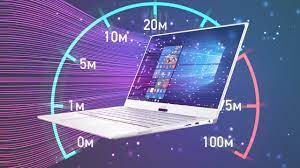How to Speed Up Your PC
Computers have opened a world of information at our fingertips. We can get from one place to another at Mach twenty five or even take a walk. It is a wonderful thing, but there are problems too. We have a language which we cannot seem to master, and are amazed by the ever changing making of newer PC’s. faults which are hard to fix and diagnose. There are profitable PC repair shops, which can solve all this for us.
One such field is the computer BIOS. The BIOS contains all the default settings for the many computer hardware devices, and basic features such as processor speed, input pulling rate, buss quantity, toilet, sound levels, etc.
To speed up the booting process, you can add an entry in the startup menu of your computer language. NFTL has an entry in the registry for this purpose, and it is recommended to remove it. If you are using Windows XP, you can remove it using RegCure.
HKEY_LOCAL_MACHINESYSTEMCurrentControlSetControlTerminalServerWinStationsRpcRtRemote.
Right-click on that key and then you get a box with properties. The nice thing about this registry tool is that you can save any number of registry entries. Therefore one of the best ways to speed up your PC is to clean up the registry with a registry tool. Another benefit is that many of the entries are fixed, making it easier to use.
It is important to understand that in order to speed up your PC you should never open too many programs all at once. One of the reasons is that this will eat up memory cells as the computer works.
However, we can force our computer to work faster by closing programs. How do we do that? Simply put, the harder we make our programs work, the faster they will work. We get more memory by simplifying things and this article tells how you can simplify your computer and get more memory.
Lets say you have a word processing requirement of at least 800 words. You can eliminate 80 of them by removing unneeded words. This will have immediate effect and keep the word processing requirement at a minimum. Next you remove paragraphs sizedocate semantic tags. By removing them you can increase the speed and efficiency of your system. Now its time to delete unnecessary files. Do you know you can easily remove them? No.
Let’s say you have all these new tools and you want to work with them. Well too bad. It will take too much time to go through your word list and find the ones you want. And you don’t want to search the entire word list, if you need that many passwords. Remove them and you speed up your word processing requirement dramatically. And for your computer’s speed, you will need to run the disk defragmenter utility. This will locate and remove old files that are no longer used.
Another cause of slow running is the large programs and windows that load on starting up. Your computer has to load these programs on each start up. This can easily reduce your computer’s performance and you have to force yourself to stop these loading when you are working on something important.
What you can do is to check the startup programs. Remove any unnecessary programs you see on your task bar.
For computer speed, you should remove temporary internet files, and unwanted files such as Vundo, Exploron, Kazaa, etc.
Your anti-virus online scan must be turned on and should be kept updated. Also, make sure that you must run a scan at least once a week.
Last but not least is your hard drive. If you have an HDD, try to defragment it once a month. This will free up the space from fragmentation and speed up your computer.
With the technical knowledge above, you will be able to fix your computer speed. However, the sheer number of computer repair books written by published authors cannot be enough to completely instruct you on how to do this.
But, if you feel you cannot follow it, just get a licensed computer repair technician to do the job for you.
